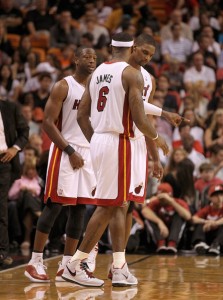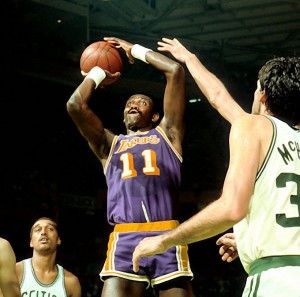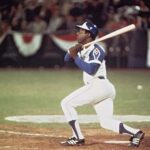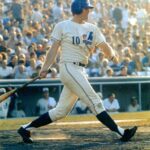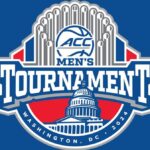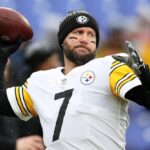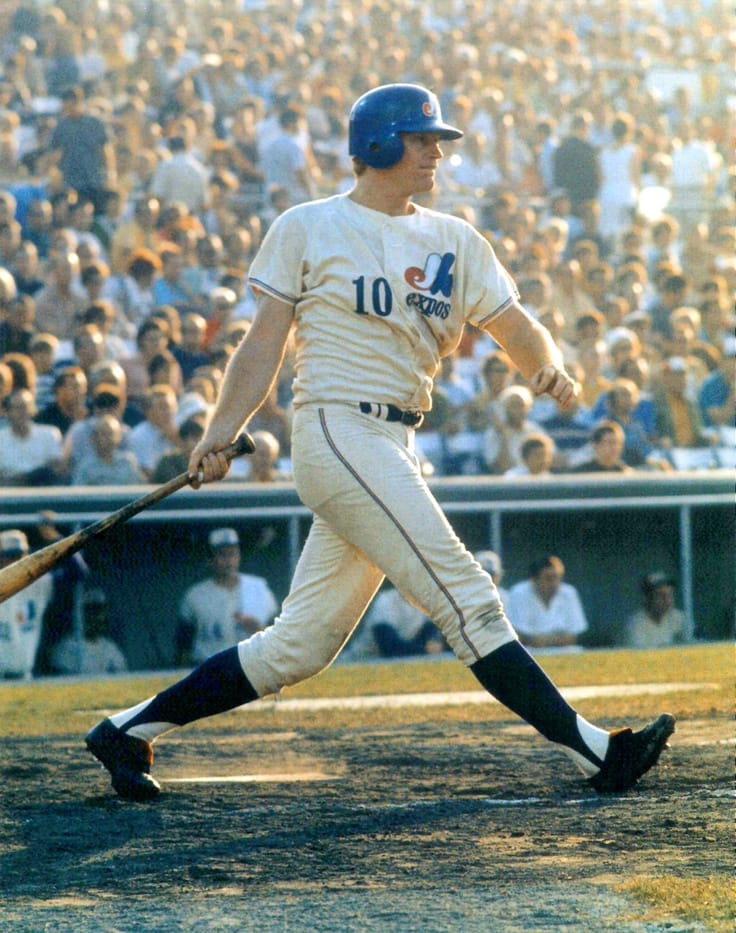In the NBA, Great Teams Still Top Great Individuals
The recent struggles of the Miami Heat offer another reminder that it takes more than just having great players to make a great team. Though the Heat have two of the best players in the game in Lebron James and Dwyane Wade and another All Star in Chris Bosh, they have yet to develop the chemistry needed to become championship contenders.
Through NBA history, there have been many teams with two or three superstars. However, what has helped some squads rise above the others to championship level has often been having a supporting cast specifically designed to accent the strengths of the star players.
Here is a look at five teams that had at least two superstars, but became super teams because of the supporting cast that filled specific roles and allowed the stars to be stars.
1980s Los Angeles Lakers – Arguably, the trio of Kareem Abdul-Jabbar, Magic Johnson and James Worthy makes James, Wade and Bosh look like the Three Stooges. When you add to the mix players like Byron Scott, Norm Nixon, Mychal Thompson, Michael Cooper, Kurt Rambis, A.C. Green, Jamaal Wilkes and Bob McAdoo you have the makings of a team that won five World Championships and reached four other NBA Finals in a 12 year stretch.
1980s Boston Celtics – To compete with the great Lakers teams, the Boston Celtics of the 1980s had to have their own stable of superstars and great supporting players. While the supporting cast evolved over the decade, the trio of Larry Bird, Robert Parrish and Kevin McHale was constant. At various times during the decade, the supporting cast that helped them to three titles and five finals in the decade included Tiny Archibald, Chris Ford, Cedric Maxwell, Gerald Henderson, Rick Robey , Danny Ainge, Quinn Buckner, Dennis Johnson, Scott Wedman, Bill Walton and M.L. Carr.
1983 Philadelphia 76ers – For nearly a decade, the Philadelphia 76ers had a supporting cast good enough to reach the finals three times, but with only one superstar in Julius Erving they were unable to claim the championship. The arrival of Moses Malone for the 1982-83 season provided the additional superstar needed to help lift the 76ers to the top as they won 65 regular season games and 12 of 13 playoff games in winning the title. In addition to Erving and Malone, the 76ers’ roster also included Andrew Toney, Maurice Cheeks, Bobby Jones, Marc Iavaroni, Earl Cureton and Clint Richardson.
1990s Chicago Bulls – The interesting thing about the Chicago Bulls during their run to six championships during the 1990s was that with the exception of their two superstars Michael Jordan and Scottie Pippen, the entire supporting cast changed from their first three-peat to their second run of three straight championships. However, in both cases the formula was similar as the supporting cast included a rebounding forward (Horace Grant then Dennis Rodman), big-body centers (Bill Cartwright, Scott Williams and Will Perdue then Luc Longley, Jason Caffey and Bill Wennington) and outside shooters (John Paxson and B.J. Armstrong then Ron Harper and Steve Kerr).
2000s Los Angeles Lakers – After spending several years developing the cast to support superstars Shaquille O’Neal and Kobe Bryant, the Lakers finally put it together during their run of three straight titles from 2000-2002. The supporting cast included a number of players with previous championship pedigrees including Ron Harper, A.J. Green, John Salley, Horace Grant and Robert Horry. They also had veterans Glenn Rice, Rick Fox and Brian Shaw and youngsters in Derek Fisher and Tyron Lue.
Even beyond these five teams, most other championship teams over the last three decades included both a clear set of two or three superstars and a supporting cast of talented role players all capable of fulfilling a specific and important role.
That has been one challenge for the Miami Heat in their first season of having the “big three.” Recent struggles have made it clear that no one on the Heat is clear or comfortable in their role.
It will take time, but if the Heat are going to enjoy similar success to the teams highlighted above, they must surround their superstars with a solid supporting cast and then make sure everyone understands their where they fit in the puzzle.
